Beans are nutritional powerhouses, packed with fiber, plant‑based protein, vitamins, and minerals. Beyond basic nutrition, they are critical in maintaining a healthy gut, supporting the digestive system, and nurturing a robust gut microbiome. In this post, we’ll explore how beans—one of the top fiber-rich foods—aid digestion, nourish beneficial bacteria, and help prevent digestive discomfort.
The digestive system, also known as the gastrointestinal (GI) tract, is a marvel of biological engineering. It involves a complex process that breaks down and absorbs nutrients from our food. This intricate system includes the mouth, esophagus, stomach, small intestine, and large intestine, each playing a crucial role in proper digestion. A healthy digestive system is essential for overall health and well-being, ensuring our bodies receive the necessary nutrients to function optimally.
Central to this system is the gut microbiome, a bustling community of trillions of microorganisms, including beneficial bacteria. These microorganisms live in the digestive tract and are vital for digestion, immune system function, and the production of specific vitamins. The large intestine, in particular, is a hotspot for these beneficial bacteria, which help break down food particles that the small intestine cannot digest. By maintaining a balanced gut microbiome, we support not only our digestive health but also our overall health.

The gut microbiome is a delicate ecosystem of microorganisms residing in the gastrointestinal tract. With over 100 trillion microorganisms, most of which are beneficial bacteria, this microbiome plays a pivotal role in our health. Beneficial bacteria such as Lactobacillus and Bifidobacteria are essential for maintaining a healthy gut microbiome. They help break down complex carbohydrates, digest fats, and absorb nutrients from our food.
A healthy gut microbiome is crucial for proper digestion and immune system function. It also contributes to overall health by producing essential vitamins and regulating hormone production. Conversely, poor gut health has been linked to various health conditions, including irritable bowel syndrome (IBS), inflammatory bowel disease (IBD), and even mental health disorders. Maintaining a balanced gut microbiome is essential for preventing these conditions and promoting overall well-being.
A healthy gut microbiome offers numerous benefits for overall health and well-being. It helps maintain a robust immune system, reduces inflammation, and enhances digestion. Additionally, a healthy gut produces essential vitamins such as vitamin K and biotin and regulates hormone production. Research has shown that a healthy gut microbiome is associated with a reduced risk of chronic diseases, including heart disease, diabetes, and certain types of cancer.
Eating a diet rich in fiber, fruits, and vegetables supports the growth of beneficial gut bacteria, helping maintain a healthy gut microbiome. These foods provide the necessary nutrients and prebiotics that beneficial bacteria need to thrive. By prioritizing a diet rich in these foods, we can support our gut health and, in turn, our overall health.
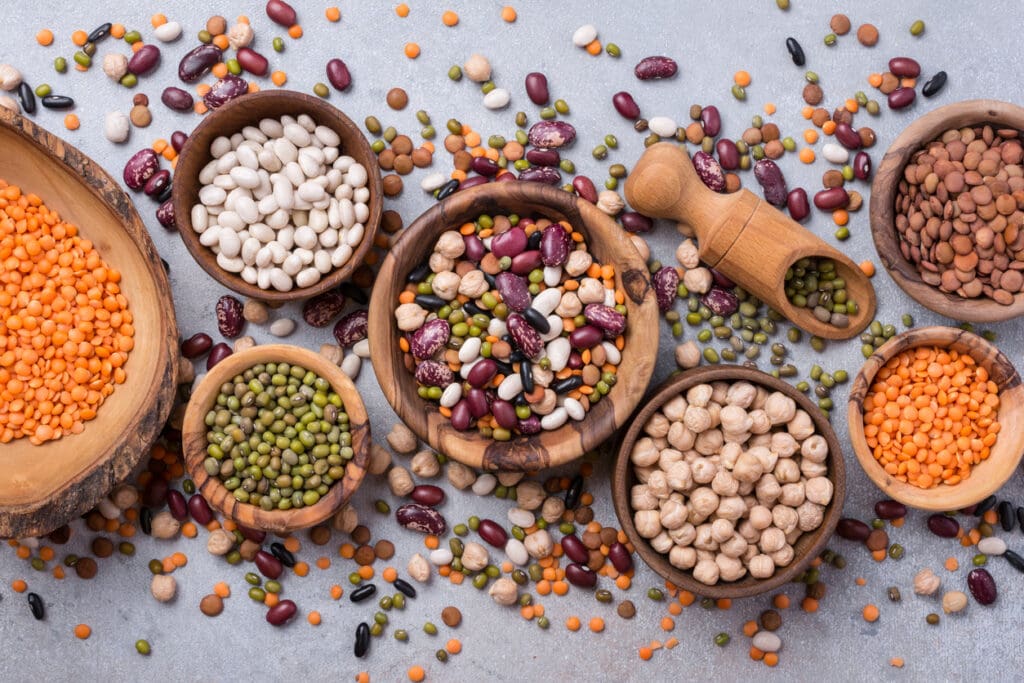
A balanced gut microbiome is essential for overall health. The large intestine and small intestine together form your gastrointestinal tract, where trillions of microorganisms—including good bacteria—live and work. Beans provide complex dietary fiber, a primary fuel for these microbes:
Regularly eating beans helps maintain balance in your GI tract, reducing gastrointestinal symptoms such as constipation, diarrhea, and intestinal gas. Most people do not consume enough fiber to maintain a healthy gut microbiome.
Beans are among the very best high fiber foods for smooth digestion:
For those with irritable bowel syndrome or lactose intolerance, beans can still be tolerated when introduced gradually. Soaking dried beans, rinsing canned beans, or combining them with fermented foods (like kimchi or yogurt) or probiotic supplements eases adaptation.
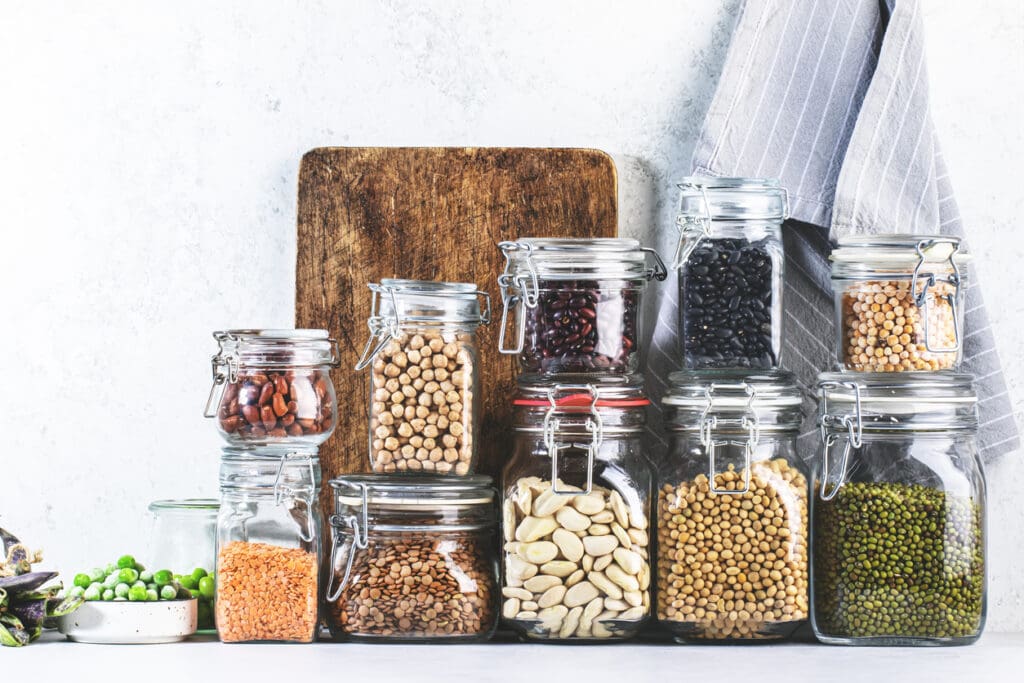
The prebiotics in beans are non‑digestible fibers that selectively feed beneficial bacteria. For example, prebiotics in beans can increase the population of beneficial bacteria like Bifidobacteria:
Incorporating beans alongside fermented foods and whole grains creates a diverse diet rich in fiber and live cultures, strengthening your healthy microbiome.
High fiber foods, such as whole grains, fruits, and vegetables, are essential for maintaining a healthy gut microbiome. Fiber acts as a prebiotic, feeding the beneficial bacteria in the gut and promoting their growth. A fiber-rich diet can help alleviate symptoms of constipation, diarrhea, and irritable bowel syndrome (IBS). Additionally, high fiber foods can help lower cholesterol levels, regulate blood sugar levels, and aid in weight management.
Legumes, nuts, and seeds are high-fiber foods that can be easily incorporated into a healthy diet. We can support our gut health and improve our overall well-being by consuming various high-fiber foods. Incorporating more fiber into our diet is a simple yet effective way to promote a healthy gut microbiome and prevent digestive discomfort.

Fermented foods, such as yogurt, kefir, and sauerkraut, are rich in live microorganisms that support the growth of beneficial bacteria in the gut. These foods are packed with probiotics, which help maintain a healthy gut microbiome and alleviate symptoms of digestive disorders. Probiotic supplements can also be taken to support gut health, but choosing a high-quality supplement that contains multiple strains of beneficial bacteria is essential.
Incorporating fermented foods into a healthy diet is easy and offers numerous health benefits, including improved digestion, boosted immune system function, and even mental health benefits. By enjoying various fermented foods, we can support our gut health and enhance our overall well-being. Maintaining a healthy gut microbiome through fermented foods and probiotics is a powerful way to promote digestive health and prevent gastrointestinal symptoms.
While fiber is the headline, beans also supply key nutrients that support the digestive tract and overall health:
By delivering both fiber and micronutrients, beans help your body digest fats and complex carbohydrates more efficiently, fueling every system from your liver to your immune system. These nutrients also aid digestion by supporting the smooth functioning of the digestive tract.
To harness the health benefits of beans for gut health, follow these guidelines:
Incorporating beans into a diet rich in fiber, live cultures, and diverse plant foods is one of the simplest yet most powerful ways to support your gut health and digestive system. From nurturing a healthy gut microbiome to easing digestive discomfort and bolstering your immune system, beans deliver on multiple fronts. Beans also aid digestion by providing essential nutrients and fiber. Start small, stay consistent, and watch as your digestive tract and body thank you.
Do you have a favorite bean recipe or tip for combating digestive symptoms? Share it below to help others on their journey to a healthier gut!

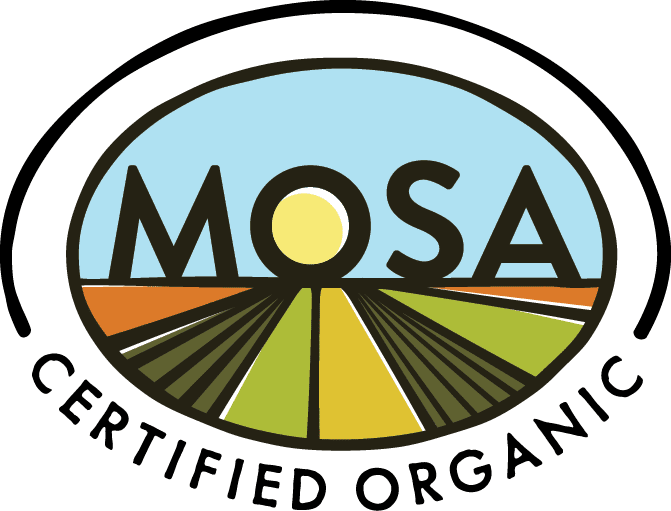




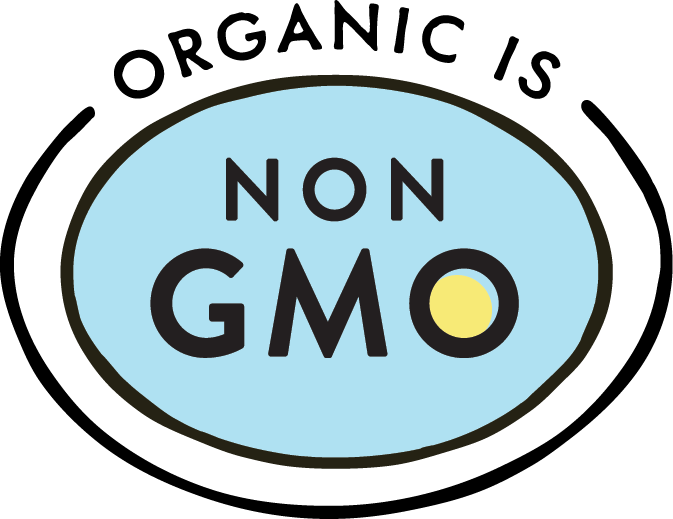
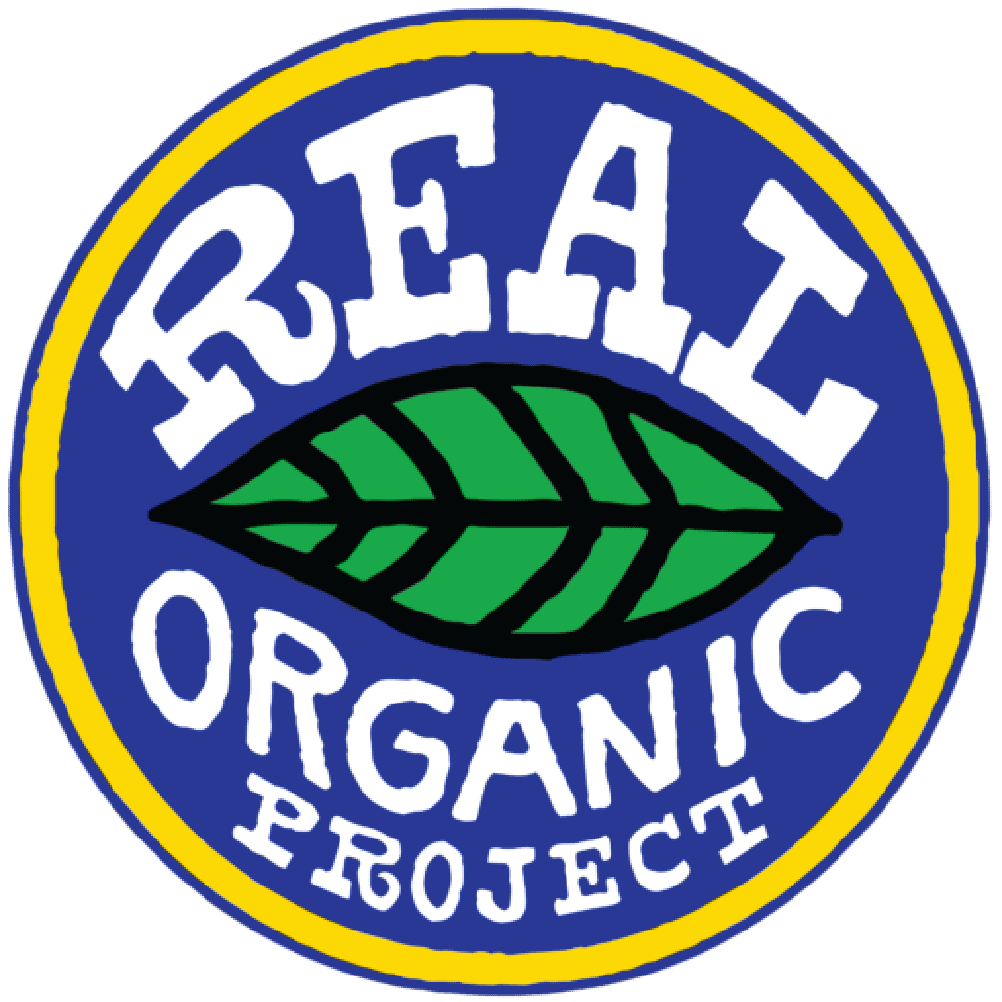

Sign Up for Exclusive Updates, Current Events, Recipes, and Special Offers and more!